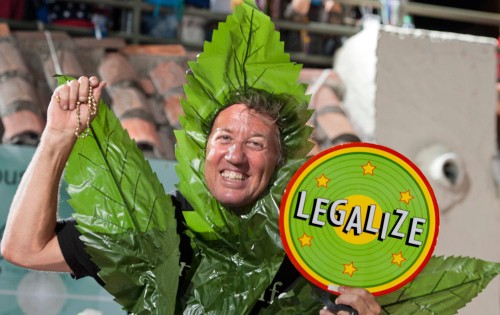With states like Alaska, Oregon, Colorado, Washington, and some cities in Maine and Michigan legalizing marijuana in recent years, and several other states decriminalizing the drug, legalization of marijuana for both medical and social use has become a prominent social issue. This issue has been placed on more and more ballots, with an estimated 58% of Americans backing legal marijuana, according to a Gallup poll. This poll shows that a majority of Americans favor legal marijuana for the third consecutive year.
Federally, marijuana remains an illegal substance for both social and medical use. However, many states have begun to pass legislation allowing for the medical use of marijuana, meaning the use of marijuana is legal with a prescription from a doctor. A few states have legalized marijuana for recreational use, meaning the use and transportation of a small amount of marijuana are legal for adults over the age of 21. So far, 25 states and the District of Columbia have legalized marijuana in some form.
But the question remains, how has the legalization and decriminalization of marijuana affected addiction or even the amount of people who are using marijuana? According to one of our previous articles, there hasn’t been much of a difference in most places, and in Colorado, there are actually fewer young people smoking marijuana after legalization than before the law was passed. However, the long-term ramifications of legalizing marijuana have yet to be seen, since the first states to legalize marijuana for social use, Colorado and Washington, passed the legislation in 2014.
One potential issue with the legalization of marijuana is the drug’s reputation as a gateway drug. It has been hypothesized that marijuana use is likely to precede the use of other legal and illegal substances including alcohol, cigarettes, and harder drugs. The potential for marijuana use to precede or worsen dependencies on other drugs is especially troublesome for states like California.
According to Forterus, a substance abuse rehabilitation facility, California residents battle addiction and substance abuse at rates higher than Americans in general. And since mental health issues and substance abuse commonly co-occur, this leads to a high rate of California residents that struggle with mental health issues. Approximately one out of every six California residents are considered to have a mental health need, and California was in the top 10 states for illicit drug usage among adolescents between the ages of 12 and 17.
It is important to remember that the majority of marijuana users will not go on to use any other illegal substances. However, for those that already struggle with substance abuse or mental health, marijuana use can worsen these dependencies or make them harder to treat.
While there are many valid arguments for and against the legalization of marijuana, it seems clear that there has not been any significant increase in the number of people using marijuana because of legalization. In fact, due to the state regulations, legalization of marijuana may make it harder for people under the age of 21 to obtain and use it. However, the current effects of legalization that can be studied are only short-term, since the legalization of marijuana for recreational use only started in 2014. Possible long-term effects may include an increase in the use and abuse of other legal and illicit substances and a worsening of mental health symptoms in marijuana users. Only time will tell.





6 comments